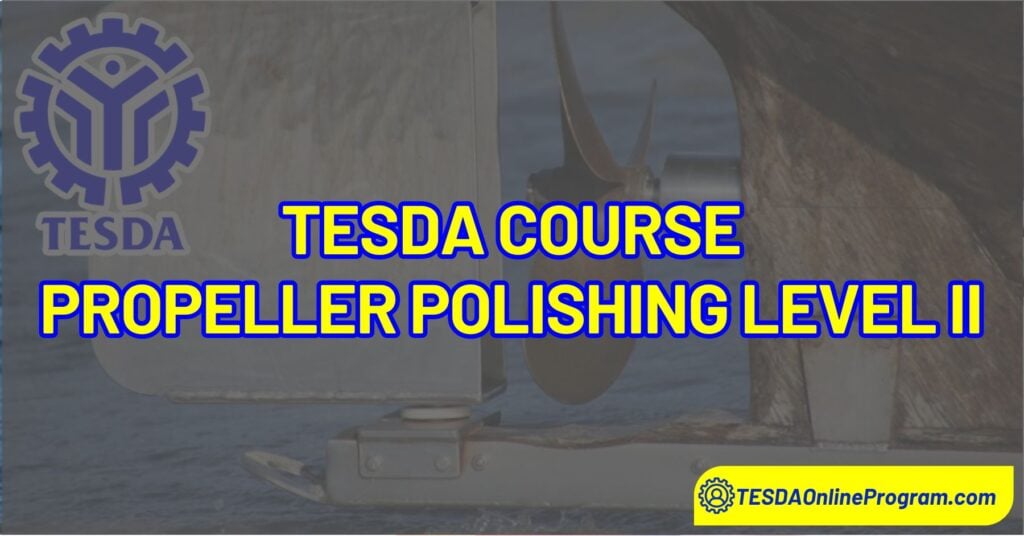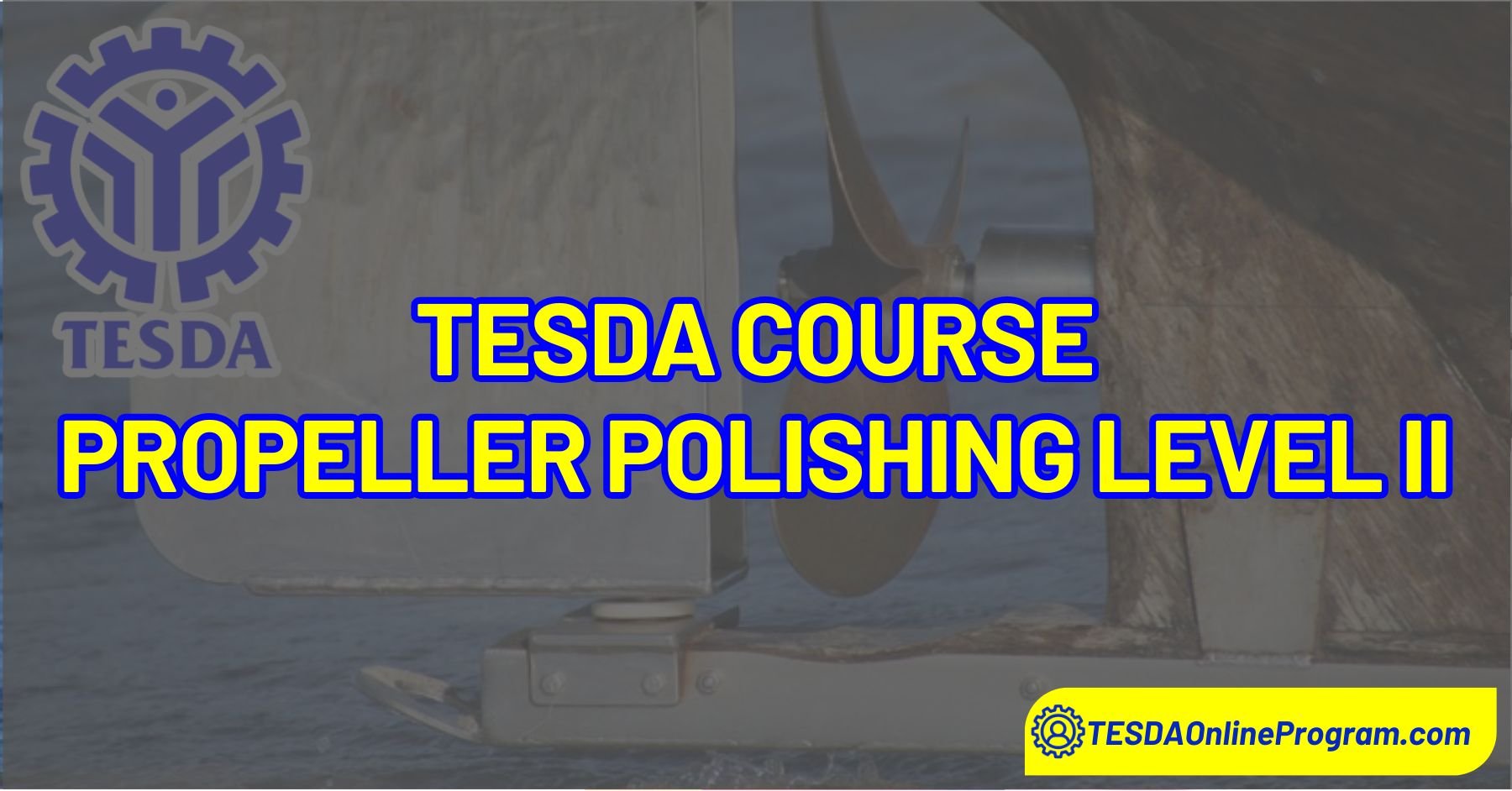The Underwater Propeller Polishing Level II Course by TESDA is designed for experienced divers and marine technicians looking to advance their skills in underwater propeller maintenance. This specialized program equips participants with the competencies needed to perform efficient and precise propeller polishing, ensuring optimal vessel performance and reduced fuel consumption.
Also read: List of TESDA Courses for Maritime
With a focus on safety, technical efficiency, and environmental compliance, the course provides hands-on training and in-depth knowledge to enhance expertise in this critical aspect of marine maintenance. Whether you’re aiming to refine your skills or meet professional standards, this program offers valuable insights into best practices for underwater propeller care.

Benefits
Here are some benefits of taking Underwater Propeller Polishing Level II Course by TESDA:
- Gain specialized skills in underwater propeller polishing to improve career opportunities in the marine industry.
- Enhance technical expertise in maintaining propeller efficiency and performance.
- Learn best practices for safety and environmental compliance during underwater operations.
- Increase employability as a certified professional in a high-demand marine maintenance field.
- Obtain a TESDA qualification, recognized for its industry standards and credibility.
Units of Competency
The units of competency comprising this qualification include the following:
Basic Competencies:
- Participate in workplace communication
- Work in team environment
- Solve/address general workplace problems
- Develop career and life decisions
- Contribute to workplace innovation
- Present relevant information
- Practice occupational safety and health policies and procedures
- Exercise efficient and effective sustainable practices in the workplace
- Practice entrepreneurial skills in the workplace
Common Competencies:
- Apply safe practices
- Interpret ship design
- Perform calculation for underwater activities
- Contribute to quality system
- Use hand tools
- Take immediate action upon encountering an accident or other medical emergency
- Take precautions to prevent pollution of the marine environment
Core Competencies:
- Perform underwater propeller polishing
- Conduct emergency minor repairs on ship’s propeller
Sample of Certificate of Completion

Job Opportunity
A person who has achieved this qualification is competent to work as a Commercial Diver specializing in Propeller Polishing.
Requirements
To enroll in the course, you’ll need the following documents:
- PSA Birth Certificate
- High School or College Diploma
- Certified True Copy of Official Transcript of Records or Form 137
- Certificate of Good Moral Character or GMRC
- 1 x 1 and/or 2 x 2 pictures
For more information, please contact the enrollment site that matches your specific needs. Keep in mind that the criteria may vary.
Also read: TESDA Able Seafarer Courses
Frequently Asked Questions
1. What is the Underwater Propeller Polishing Level II Course?
A: The Underwater Propeller Polishing Level II Course is a TESDA-certified program for experienced divers and marine technicians. It offers training in propeller maintenance to boost vessel performance, cut fuel use, and ensure safety and environmental compliance.
2. What job opportunities are available after completing this course?
A: Graduates of this course are qualified to work as Commercial Divers in Propeller Polishing, a highly in-demand role in the marine industry.
3. Does the course include hands-on training?
A: Yes, the course includes hands-on training to ensure participants develop practical skills in underwater propeller maintenance and polishing.
4. Is the TESDA certification recognized internationally?
A: TESDA is known for its industry-standard qualifications, with certifications recognized globally, offering value for both local and international opportunities.
5. What are the safety measures taught in this course?
A: The course emphasizes occupational safety practices, safe handling of tools, and environmental compliance to ensure safe and efficient underwater operations.
6. Do I need to have prior diving experience to enroll?
A: Yes, prior diving experience is necessary since this course is intended for individuals with existing knowledge and skills in diving, particularly those looking to specialize in marine maintenance.
Summary
The Underwater Propeller Polishing Level II Course by TESDA is a specialized program for experienced divers and marine technicians looking to advance their skills in propeller maintenance. The course offers hands-on training to optimize vessel performance, reduce fuel consumption, and ensure compliance with safety and environmental standards. Participants gain expertise in technical processes, safety protocols, and best practices, earning a TESDA certification that qualifies them as Commercial Divers specializing in Propeller Polishing, a high-demand role in the maritime industry. Applicants need prior diving experience and standard enrollment documents such as a diploma, transcript, and identification photos. This practical-focused program enhances career opportunities, technical knowledge, and provides a globally recognized certification.




